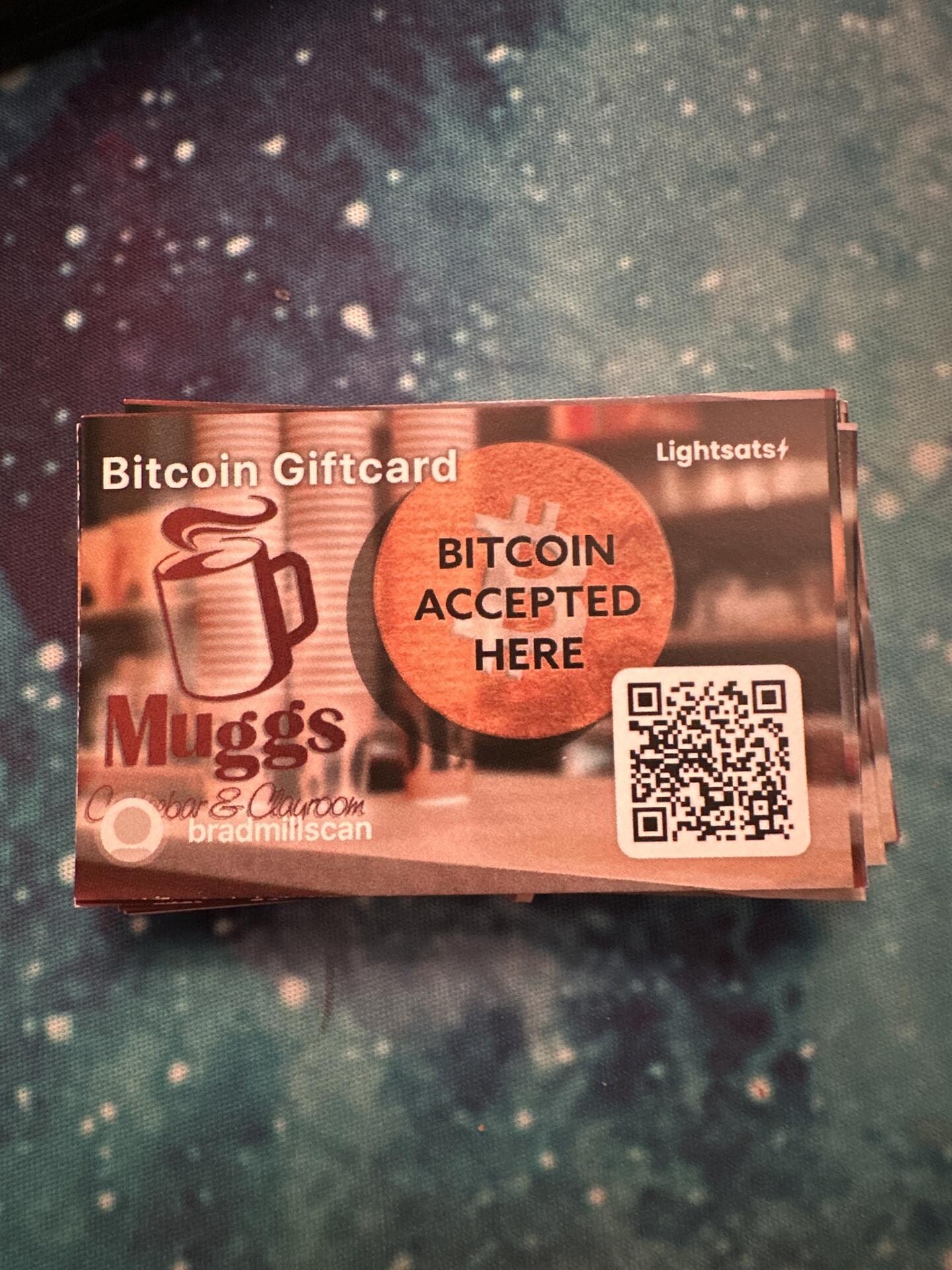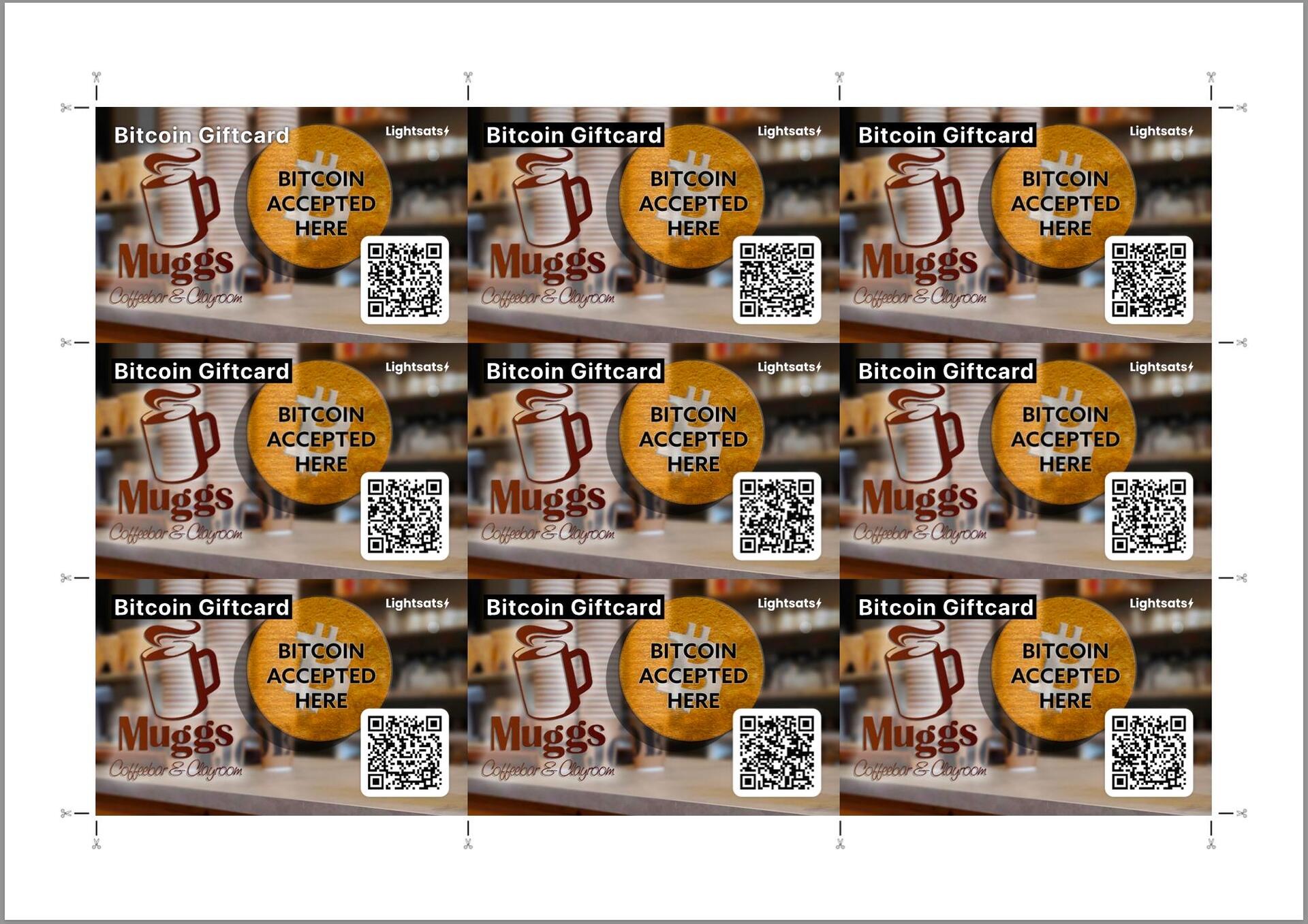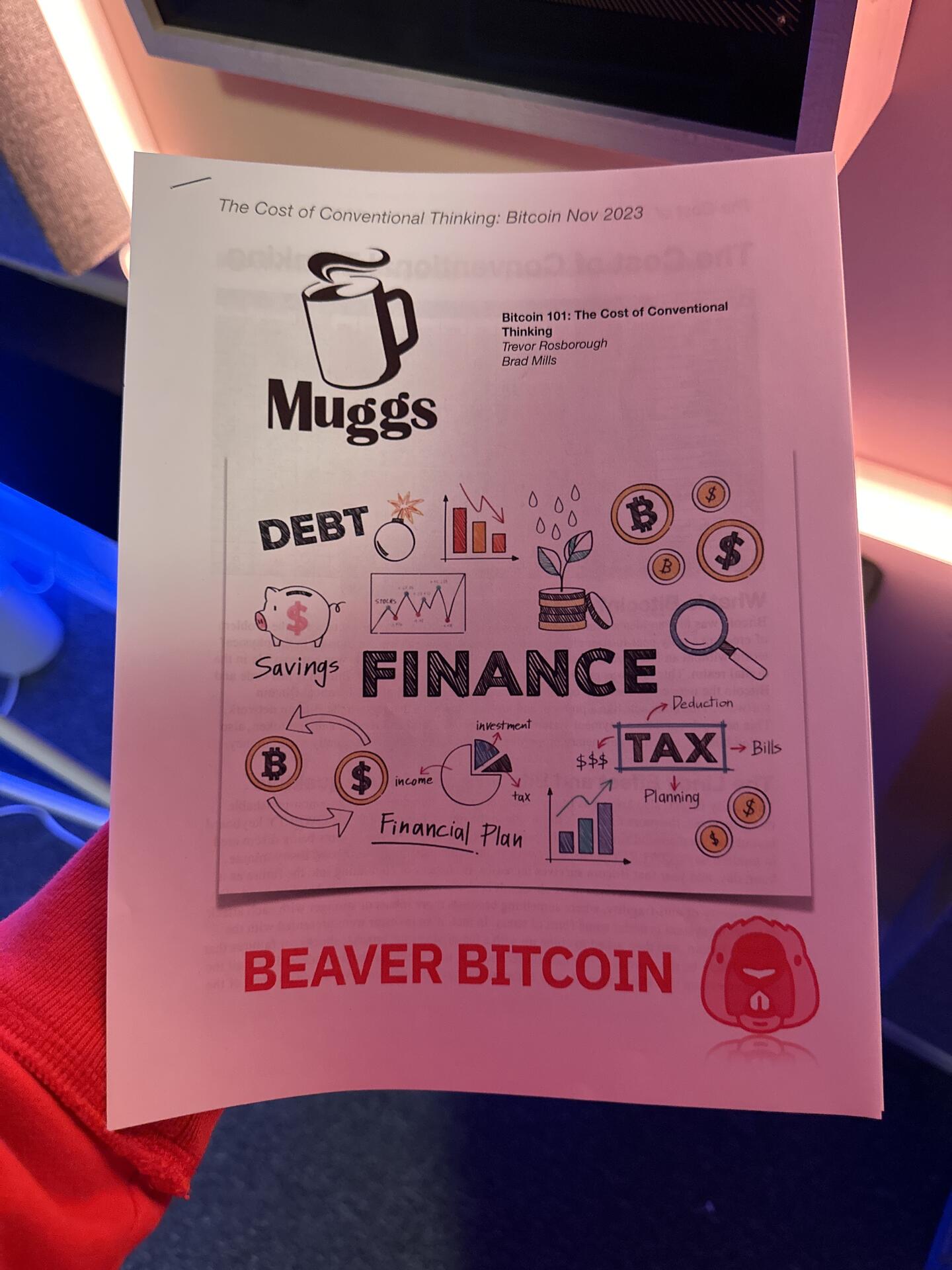bradmillscan on Nostr: Yesterday we held a Bitcoin meetup at a local cafe that I convinced to accept BTC in ...
Yesterday we held a Bitcoin meetup at a local cafe that I convinced to accept BTC in late 2021.
We didn’t call it a Bitcoin meetup, we called it a financial session on inflation & investing.
The idea was not to have a social bitcoiner meetup, but to bring friends/family to learn about the real causes of inflation, the risks to traditional markets and the opportunity in studying and saving in bitcoin.
We got ~15 people out on a Monday evening in a small town.
2 teachers, 2 real estate investors, 2 fitness instructors, 2 local entrepreneurs, 2 construction workers, 4 bitcoiners and 2 artists.
My friend and I decided to make a presentation sheet that we printed off and gave to all of the folks who came out.
We discussed at a high level the “cost of conventional thinking” inspired by a recent Saylor piece.
Here’s the presentation: https://www.dropbox.com/scl/fi/6pwxs6qm7qljsaexiu6hk/Cost-of-Conventional-Thinking.pdf?rlkey=jkw955y1nlqr4owd31tlulgyx&dl=0
I had been the only customer who paid in BTC for 2 years. The owner was impressed at the price movement of BTC as she watched her stack grow over the year.
We made up a stack of lightsats.com tip cards with enough BTC for a few cups of coffee.
The printable light sats cards are a great way to promote local businesses that support bitcoin.
You should try it in your local area if you are so inclined to give away BTC, or if you can find a sponsor to sponsor the event with ~$200-$500 in free sats.
The best thing about light sats cards is that when half of the people inevitably forget about the card and don’t claim the sats, they come back to your wallet after x days.
This is a highly underutilized orange pilling tool.
Half the people setup a Blink wallet at the cafe, claimed their sats and paid for a coffee over lightning.
It was a great night where we focused more on high level conceptual financial literacy topics and didn’t delve so far into the activism side of things.
The information was received very well as we didn’t get into libertarian views of small government, free speech issues, politics, etc.
We tried to keep it cheerful & constructive as Saylor says.


We didn’t call it a Bitcoin meetup, we called it a financial session on inflation & investing.
The idea was not to have a social bitcoiner meetup, but to bring friends/family to learn about the real causes of inflation, the risks to traditional markets and the opportunity in studying and saving in bitcoin.
We got ~15 people out on a Monday evening in a small town.
2 teachers, 2 real estate investors, 2 fitness instructors, 2 local entrepreneurs, 2 construction workers, 4 bitcoiners and 2 artists.
My friend and I decided to make a presentation sheet that we printed off and gave to all of the folks who came out.
We discussed at a high level the “cost of conventional thinking” inspired by a recent Saylor piece.
Here’s the presentation: https://www.dropbox.com/scl/fi/6pwxs6qm7qljsaexiu6hk/Cost-of-Conventional-Thinking.pdf?rlkey=jkw955y1nlqr4owd31tlulgyx&dl=0
I had been the only customer who paid in BTC for 2 years. The owner was impressed at the price movement of BTC as she watched her stack grow over the year.
We made up a stack of lightsats.com tip cards with enough BTC for a few cups of coffee.
The printable light sats cards are a great way to promote local businesses that support bitcoin.
You should try it in your local area if you are so inclined to give away BTC, or if you can find a sponsor to sponsor the event with ~$200-$500 in free sats.
The best thing about light sats cards is that when half of the people inevitably forget about the card and don’t claim the sats, they come back to your wallet after x days.
This is a highly underutilized orange pilling tool.
Half the people setup a Blink wallet at the cafe, claimed their sats and paid for a coffee over lightning.
It was a great night where we focused more on high level conceptual financial literacy topics and didn’t delve so far into the activism side of things.
The information was received very well as we didn’t get into libertarian views of small government, free speech issues, politics, etc.
We tried to keep it cheerful & constructive as Saylor says.



